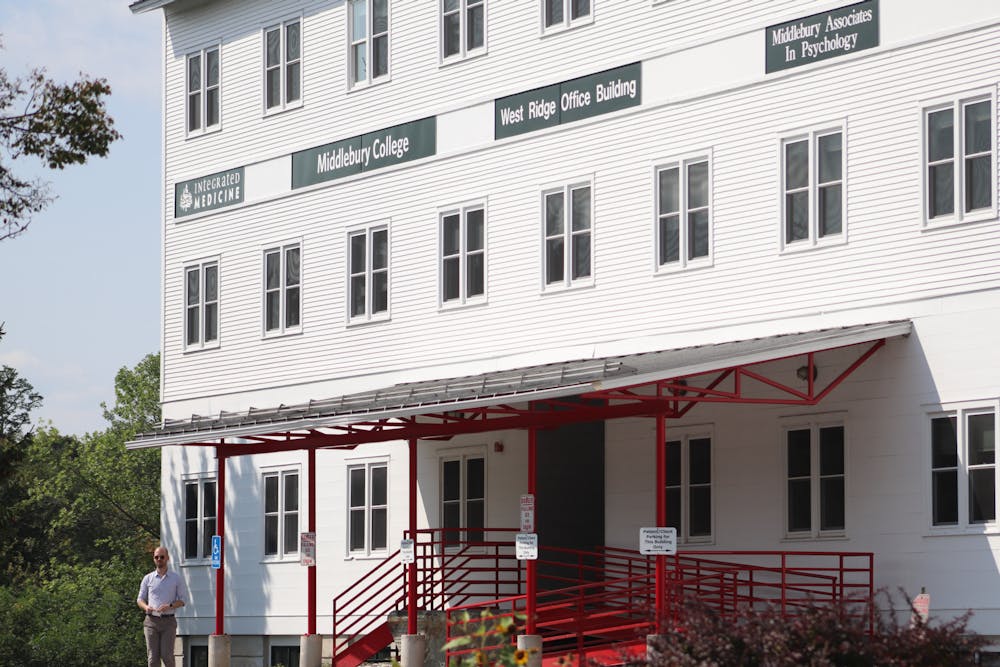Cindie Webb has been employed by the college as a custodian for over eleven years. Webb spent the 2021–22 academic year cleaning all of HMKL — Hadley, Milliken, Kelly and Lang Hall — a job meant for five custodians. Webb and a colleague bore the impacts of understaffing, covering all 49 public bathrooms, five sets of stairs, kitchens and lounges — just between the two of them.
Webb was rated by her supervisor in the ‘growing’ category of the new Human Resources compensation system, which was implemented on July 1. According to information published by the Office of Human Resources, an employee in the ‘growing’ category “requires some support while building [a] proactive, independent approach,” and “delivers increasingly consistent results with some support.”
The new compensation system has a pay grade range for each position, and individual employees are placed within that pay range based on a rating of their career progression. The system has three parts — role, skill matrix and discretion. Role identifies the average salary of specific positions on the market to create a pay grade. Once the role/grade is established, the skill matrix categories of ‘learning,’ ‘growing,’ ‘thriving’ and ‘leading’ are used to decide where an individual employee’s salary will fall within the pay range.
The ‘growing’ rating, which directly impacted Webb’s hourly pay rate for fiscal year 2023, was extremely frustrating and disappointing, she said. “It was like a slap in the face,” Webb told The Campus in late July. “They couldn’t have hurt me any more if [they] tried. It is degrading, it is humiliating.”
When Caitlin Goss stepped into the role of vice president for human resources and chief people officer in Sept. 2021, she began reimagining the college’s approach to compensation. This meant months of analyzing the Mercer wage and salary study — a report compiled by a compensation consulting firm that Middlebury pays to provide market data — that benchmarks pay rates at Middlebury against comparable markets, which eventually resulted in the new compensation plan.
“We needed to think big and we also needed to deliver on something,” Goss told The Campus. “There was a lot of pent up need to get something over the finish line.”
The discretion component of the new system gives extra money to supervisors, who can then allocate it to employees (between $500 and $3,000 in increments of $500) to slightly differentiate between two employees’ salaries, or recognize someone on the cusp of a higher skill matrix rating.
According to Goss, the new system grants more authority to department supervisors in influencing the salaries of their employees. “We trust our supervisors,” she said. “We believe they know their team well to think about how that really comes to life in their different areas.”
For employees like Webb, though, this change is frustrating, as her supervisors do not really observe the work she does day to day. “I don’t think they understand the complex little things that we run into every day over here,” she said.
Another staff member in the custodial department, who asked to remain anonymous for fear of retribution, was placed in the ‘growing’ category, despite more than 20 years of work at the college.
“What I got was like a kick in my face,” they said in an interview with The Campus.
The custodian said they were told they should have been putting in work orders and cleaning carpets in order to be higher on the skill matrix. Work orders and carpets, however, are responsibilities that custodians had previously been discouraged from taking on.
“The way [our supervisors] used to treat us is to know your place, don’t overstep. Now they’re telling us we should be doing [work orders], and it [is] jeopardized by placement,” the anonymous custodian said.
According to Goss, one main difference between this new compensation system and previous compensation structures is that the skill matrix ratings are based on career progression, rather than performance evaluation. This means that being at the college for longer will not necessarily improve a staff member’s rating.
“It’s not that once you’re here three years you move into this category,” Goss said. “It is about really the level to which you are showing ownership, delivering impact.”
The previous compensation system, Annual Performance Summary [APS], placed staff members into either ‘meeting,’ ‘almost meeting’ or ‘exceeding’ expectations each year. A rating in the exceeding expectations category meant a staff member would receive a 2–3% raise, which would be compounded into their 401k.
For Tim Parsons, college horticulturist and former president of Staff Council, the skill matrix is a welcome change from the APS system, which he described as “reviled” by everybody. “That system had been broken at this school for some time now, and it [was] another thing on the list for Human Resources to fix,” Parsons told The Campus.
The new system also increased the minimum wage for the lowest pay grade to $17 per hour as a part of the college’s effort to prioritize its lowest paid employees. Parsons said he believes the focus on raising the lowest wages was an appropriate first step. “From my point of view, the administration really erred on the right side,” Parsons said. “They fixed the bottom first and that makes a lot of sense.”
According to Brenda Ellis, senior research and instruction librarian, many staff members have taken issue with the schools Middlebury compared itself to when determining the market rates. The Mercer study looked at 105 other institutions, which were selected based on operating expenses, student enrollment and geographic location.
The issue, Ellis said, is that student enrollment data was set at Middlebury’s level or higher, which cut out peer liberal arts colleges like Williams and Amherst, while ability to pay (revenue and endowment) was not considered.
For example, Mercer studied Roger Williams University, which has 5,000 students and an $88 million endowment and Suffolk University, which has 7,500 students and a $246.2 million endowment, compared to Middlebury’s 2,600 students and $1.5 billion endowment.
Ellis also took issue with the fact that the college said pay rates would increase if the market rates go up. This means Middlebury will be waiting a year to react to how much other colleges across their market increase wages.
Parsons concurred that the system’s delayed reaction to other schools’ wage adjustments is problematic. He also said that the college must juggle their position as the market leader in the area, while not significantly raising wages in Addison County, which he said could hurt small businesses.
“As Addison County’s largest employer, is there space for us to be the market leader?” Parsons said. “That’s a tough line for the school to walk.”
While the new plan was put into practice in July, Human Resources had been distributing information about the system monthly to staff at all levels of the college since March. “This is an ongoing effort,” Goss said. “[We have a] commitment to re-evaluate and go through this process every year to make sure we stay current and we continue to bring staff salaries along with the market.”
Part of that ongoing effort includes aiming to get salary grades at 25%, 50% , and 75% of the market rate for the ‘growing,’ ‘thriving’ and ‘leading’ categories, respectively. However, due to budget constraints, the college was only able to fund the ‘leading’ salary grade at 60% of the market rate. In addition, 14% of staff did not receive a raise at all for the 2023 fiscal year.
“I want people to know that this is a multi-year process,” Goss said. “I am hoping to get [to 75%] this fiscal year.”
Though Goss said she sees the skill matrix as an opportunity for a large organization like Middlebury to balance both individual and institutional needs and goals, employees in departments such as custodial are struggling with their supervisors’ expectations.
“We didn’t have a chance to speak for ourselves at all,” Webb said.

Maggie Reynolds '24 (she/her) is the Editor in Chief.
Maggie previously served as the Senior Local Editor, a Local Section Editor, and a Staff Writer. She spent this past J-term interning for VTDigger, covering topics from affordable housing in Addison County to town government scandals. She also interned for Seven Days VT as an arts & culture reporter summer 2022 and as a news reporter for the Daily Gazette in Schenectady, NY summer 2021.
Maggie is majoring in History and minoring in Political Science and Spanish. She was a three-year member of the Women's Swimming and Diving team. Maggie enjoys running, hiking, and iced maple lattes.




